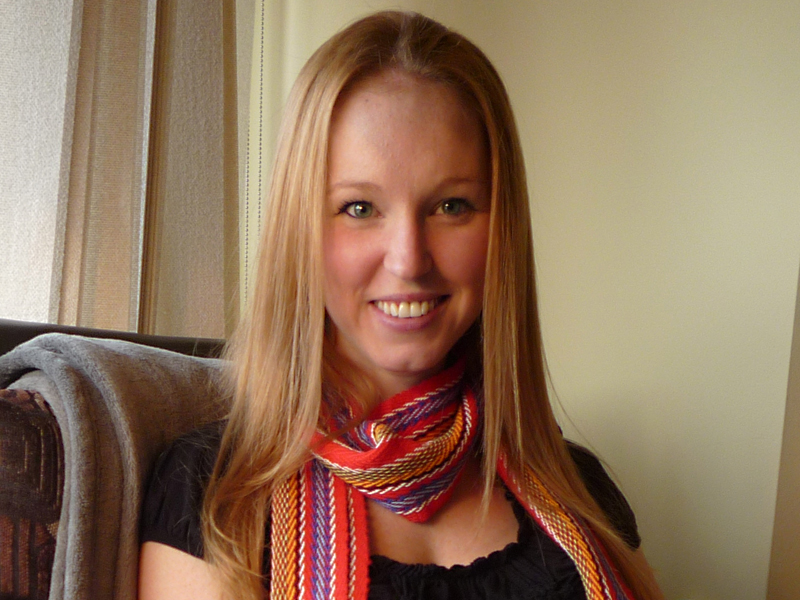Counseling grad dedicated to Aboriginal community
- Patty Pitts

Few graduate students voluntarily add more course work to their degree programs, but Jennifer Coverdale isn't like most grad students. She willingly took seven additional courses and an extra year of study so that she could graduate this month with an MA in counseling psychology that includes all of the courses in the Aboriginal Communities Counseling Program (ACCP).
The reason? Coverdale wanted to be able to produce research results to support the changes and improvements her community is calling for.
Encouraged by her M&e#180;tis Nation, Coverdale strived to do research that brings Aboriginal voices to the forefront. "I wanted to get enough letters behind my name so that policy makers and funders would listen to the lessons we have learned in our community."
She balanced her studies with work at the urban Aboriginal child welfare agency Surrounded by Cedar Child and Family Services, describing it as "an incredible grassroots organization committed to Aboriginal culture and youth." It's where she applies the skills she learned in the ACCP, which combines Western and Aboriginal counselling methods grounded in the values and traditions of Aboriginal communities.
"Most tools developed within a Euro-Western worldview do not reflect the realities of our communities," says Coverdale, who has a M&e#180;tis father and a Scottish mother. "In the ACCP, guided by Dr. Anne Marshall (educational psychology and leadership studies) and the advisory committee, we had a professor and an Elder stand side by side and deliver coursework collaboratively to ensure we kept our relations at the centre of our work."
Her commitment to the urban Aboriginal community led her to a research apprenticeship with UVic's Centre For Youth and Society, where she learned about community-based research. As part of her MA research, she found the evidence she needed to support her teachings of the importance of young, urban Aboriginals' relationships with their friends, families and nations in their life transitions. "If young people are connected to their community and culture, it ignites a fire in them that breeds resilience."
Coverdale's interest in helping youth started when she was still a youth herself as a volunteer with the M&e#180;tis Nation of Greater Victoria.
She's now enrolled in PhD studies at UVic and is continuing to study community-based research methodology and Aboriginal youth resilience.
While her M&e#180;tis culture may be different from the cultural backgrounds of the youth she is helping and supporting, Coverdale says it is no hindrance to developing strong connections to the youngsters she gets to work with.
"If you're working in the Aboriginal community, you need to know who you are and where you come from. You need to be genuine and transparent with good intentions. If you can do that, you can be part of someone's story."

